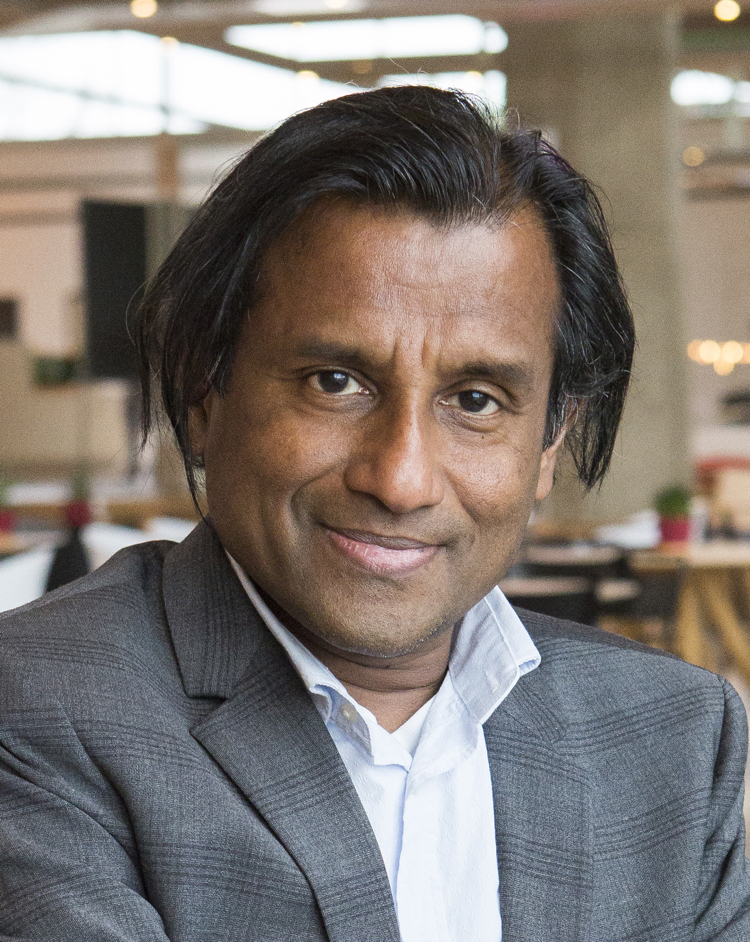In an aging society, the demand for health & care innovation is undeniable. While technology has proven to have a positive impact on quality of care, its implementation can lead to challenges like alarm fatigue. Dr. Nanayakkara explains what this phenomenon entails.
"We live in an aging population. Today's adults will become tomorrow's seniors, creating a critical situation that calls for innovative,technological solutions. However, this technology must be sufficiently performant. As the pressure on healthcare grows, patients need remote monitoring solutions that don't unnecessarily burden the scarce workforce but are there when truly needed. In this regard, there is still work to be done," says Dr. Nanayakkara; Head of the general internal medicine department at Amsterdam UMC, specialized in examining senior victims of falls.

- Dr Prabat Nanayakkara
"Many existing applications for monitoring older adults are still inadequate” he adds. “A significant number of falls go unreported. Sometimes, it's clear that an incident occurred, but the patient denies it—often out of fear or pride. Conversely, systems can also generate excessive alarms, leading to alarm fatigue among healthcare personnel."
The Cause and Effects of Alarm Fatigue
Caregivers constantly deal with interruptions during day-to-day tasks. Alarms have always been a part of their jobs, but can be distracting. These interruptions can lead to a loss of focus, create confusion and trigger overstimulation.
Alarm fatigue occurs when caregivers are inundated with a high volume of technological alerts that require their attention and response on a daily basis. The sheer quantity of alerts makes them increasingly difficult to process. Moreover, false alarms are not uncommon, inadvertently conditioning healthcare providers to not treat all alerts with equal urgency. This can potentially lead to the conscious or unconscious disregard of alarms, resulting in delayed or insufficient assistance for patients, such as after a fall, sometimes with fatal consequences.
Nobi against alarm fatigue
Prompt assistance following a fall is crucial. Academic research has demonstrated that 50% of older adults who remain on the floor for over an hour after a fall pass away within six months. Swift aid can mean the difference between life and death, and that's where Nobi steps in.
Currently, care communities utilizing Nobi achieve an average response time of less than 4 minutes, a remarkable 12 times faster than those without Nobi. To uphold this ultra-rapid response time, Nobi diligently combats a formidable adversary: alarm fatigue.
We want caregivers to understand that every Nobi alarm deserves their full attention. Only by doing so can we ensure swift, life-saving assistance after a fall. To uphold this life-saving reflex, our Nobi developers are committed to reducing the occurrence of 'false' fall escalations to zero.
Here are some features that help Nobi prevent false alarms and, consequently, alarm fatigue:
Nobi Checkmate
A complimentary feature where fall experts verify each ground detection alert. Only genuine falls trigger a Nobi alarm, alerting caregivers accordingly.
Nobi as an integrated team player
Nobi facilitates healthcare ecosystem development by offering an open API for seamless integration with partner applications. It also syncs with EHR and EMR systems, as well as existing nurse call systems, streamlining alert transmission and mitigating the risk of alarm fatigue.
Nobi Snooze Feature
Caregivers can temporarily disable fall detection using the Nobi Snooze Feature. With a single press, fall detection is paused for 15 minutes, enabling uninterrupted assistance to residents.
Nobi Vision
Last but not least, Nobi prioritizes ‘vision’ over ‘radar’ technology. This deliberate choice, combined with our advanced AI, enables more detailed and accurate image interpretation, minimizing false positive alerts.